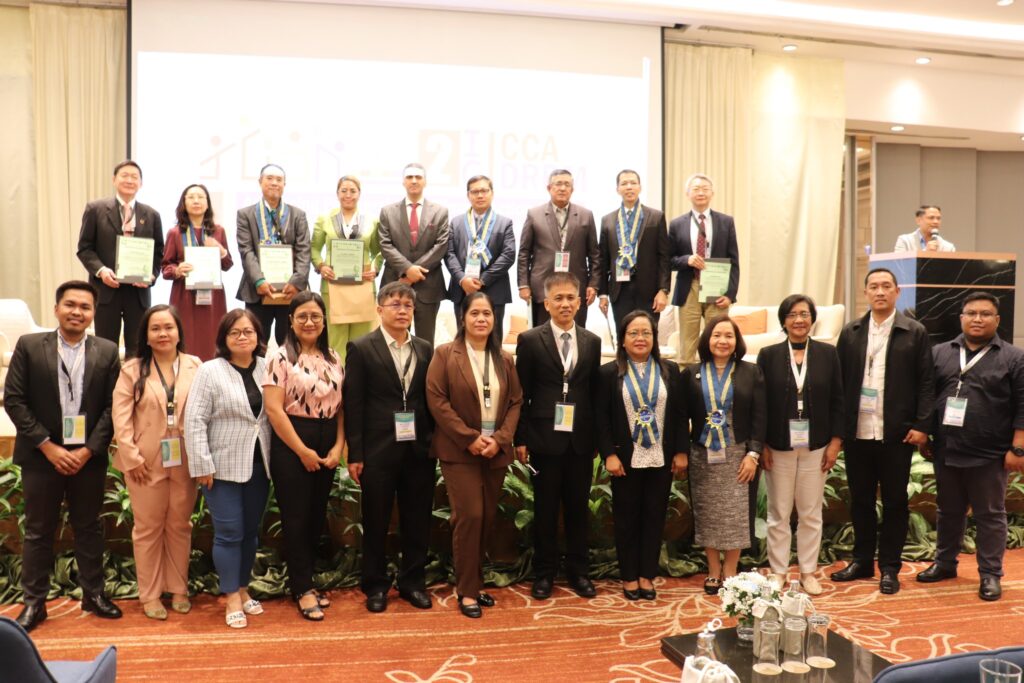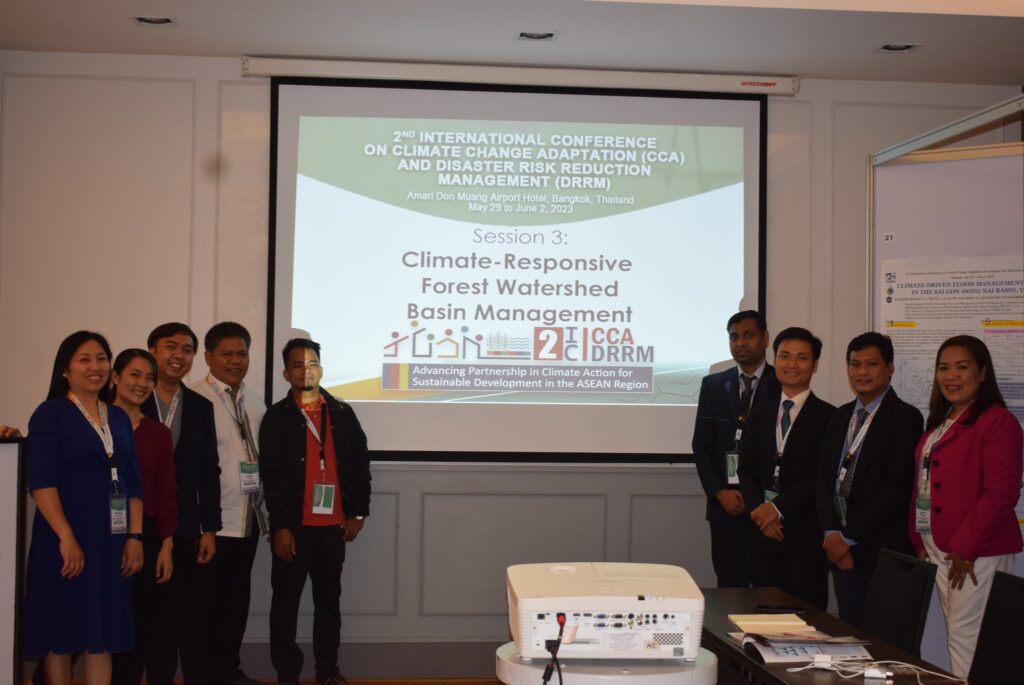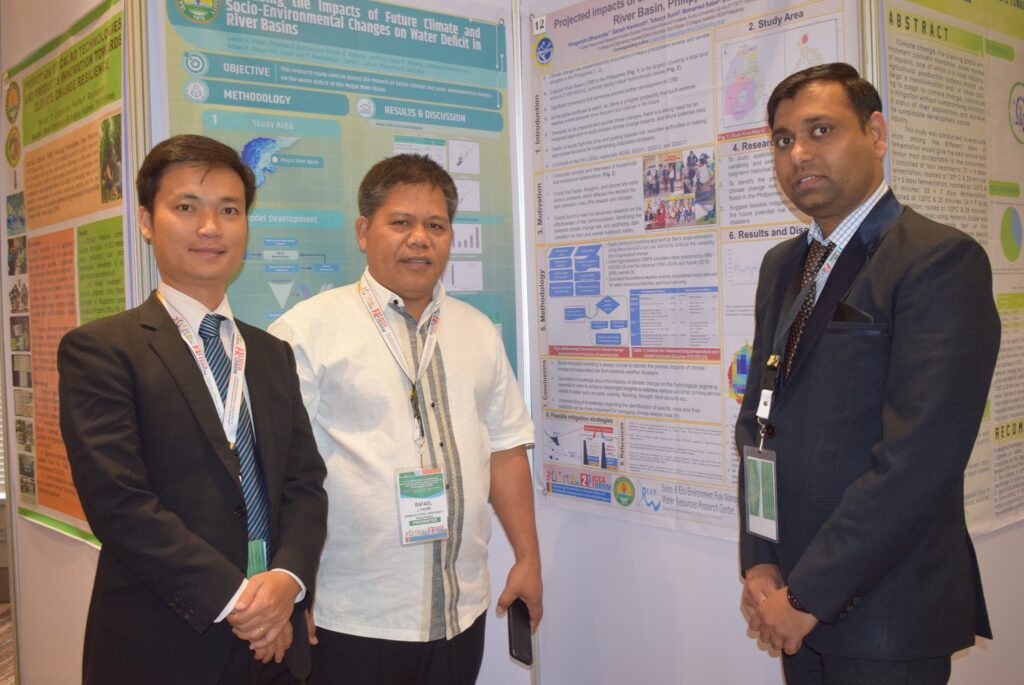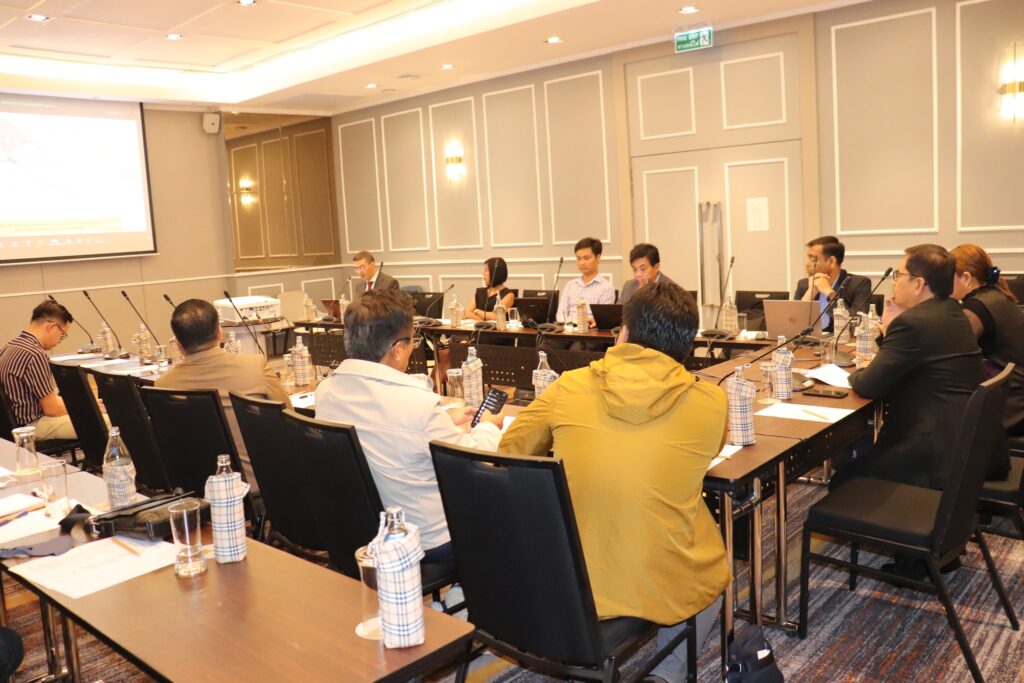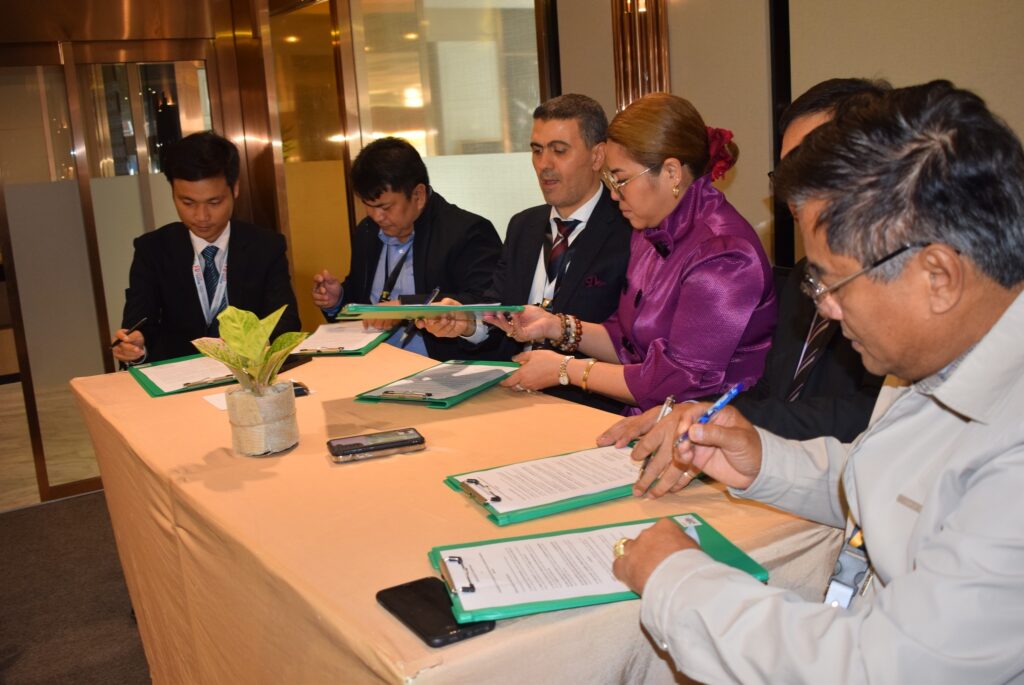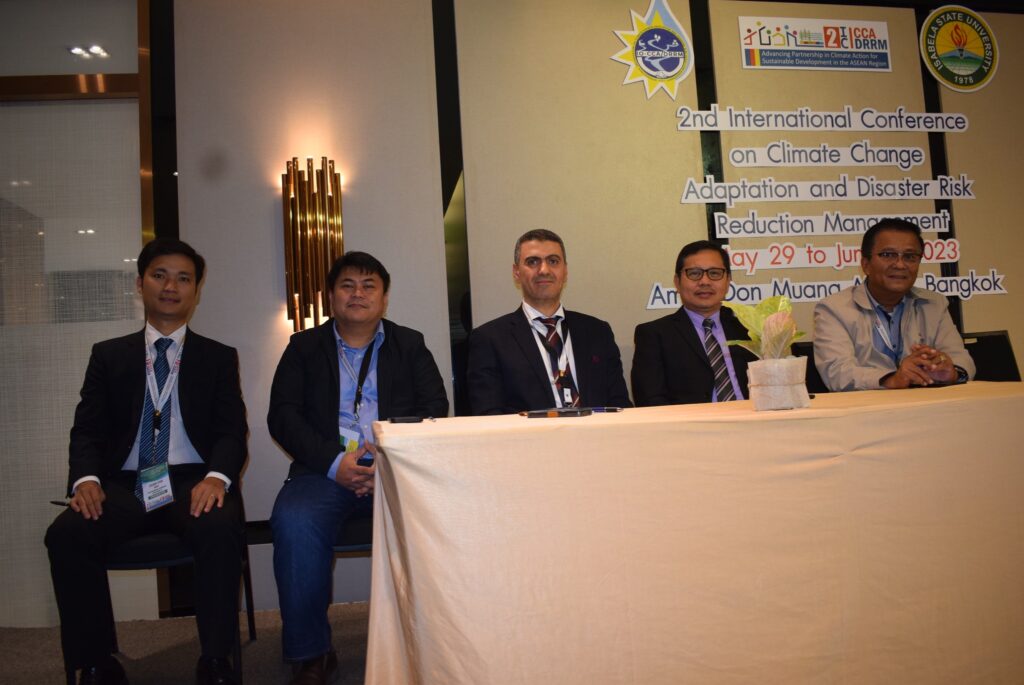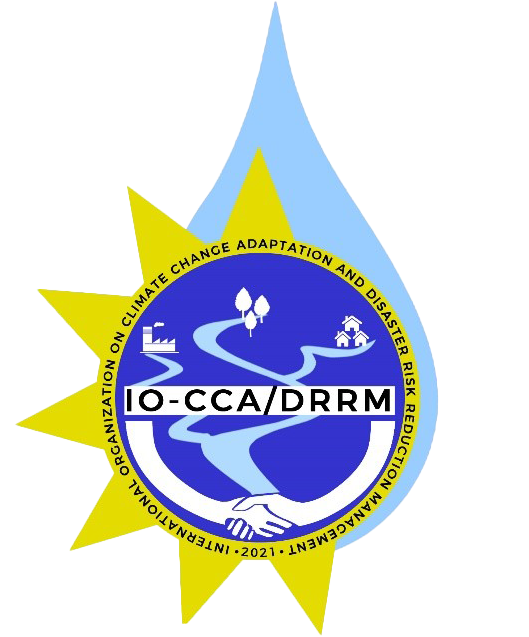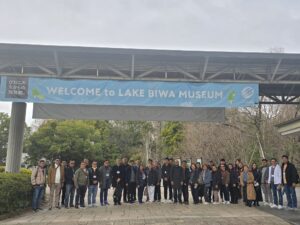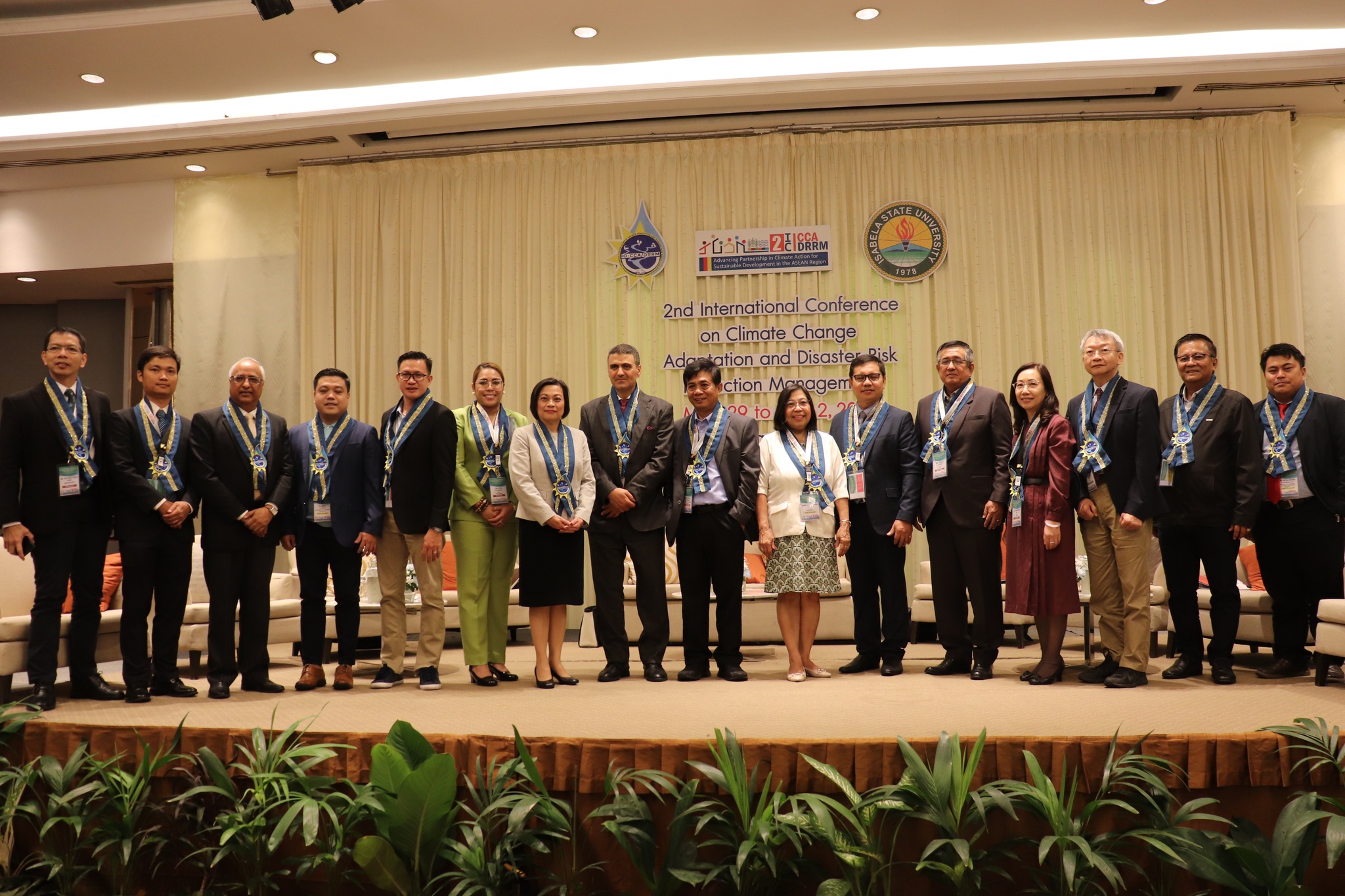
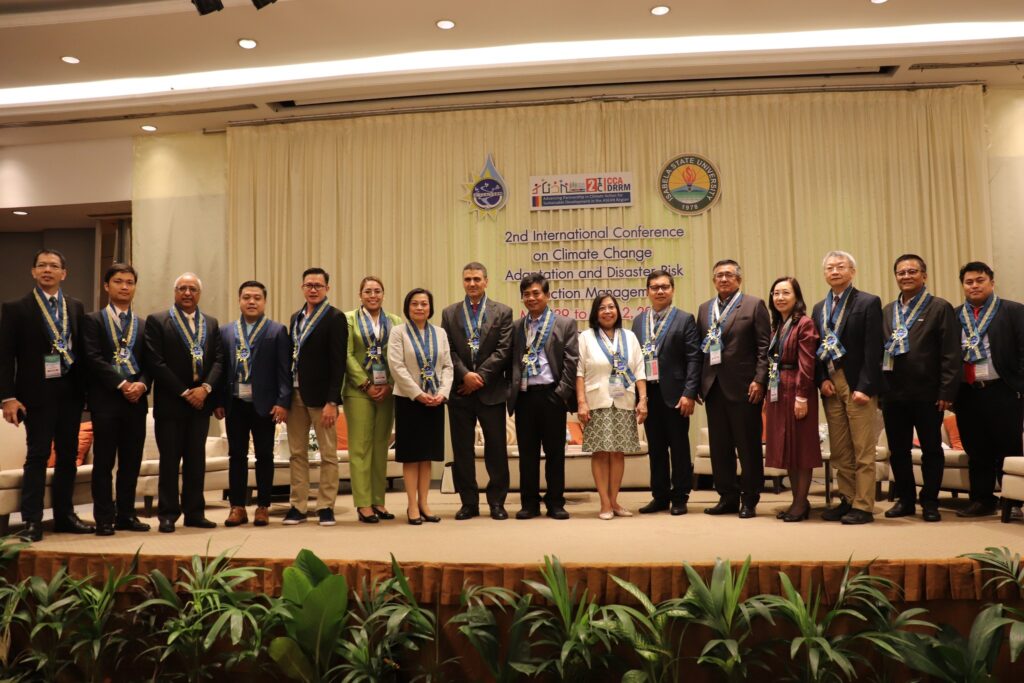
As Isabela State University embarks another milestone towards sustainable development for ASEAN region, the International Organization on Climate Change Adaptation and Disaster Risk Reduction Management Inc, along with its national and cross-border partners, organized the 2nd International Conference on CCA-DRRM on May 29 to June 02, 2023, at Amari Don Muang Airport Hotel, Bangkok, Thailand. This internationalization effort acquainted the local planners and technically minded individuals on the current developments, opportunities, and challenges on climate change adaptation and disaster risk reduction management integration in the periphery of local development planning, academic research consortium, and other scientific ventures. It was attended by distinguished administrative leaders, faculty researchers, local, provincial, and regional government officials, and private entities from the Philippines, Japan, Vietnam, Taiwan, Thailand, and Bangladesh.
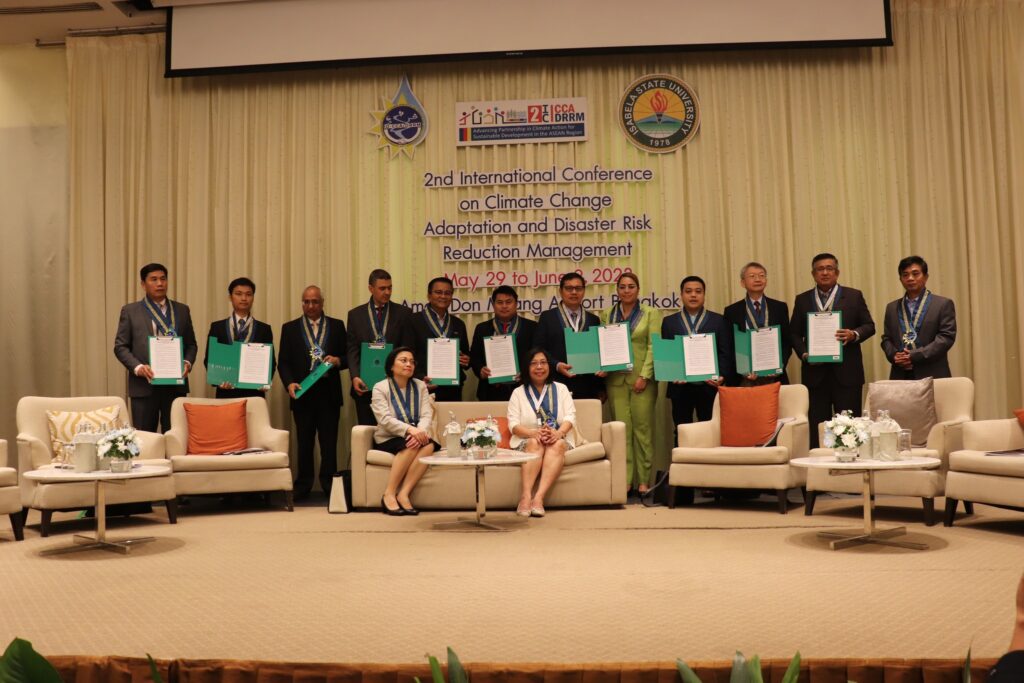
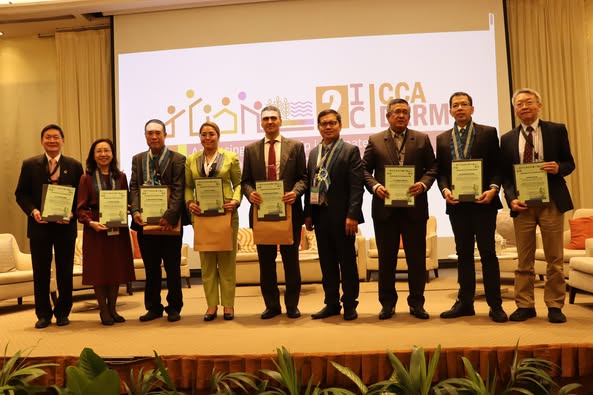
This global activity started with an organizational meeting of IO-CCA-DRRM founding members and incorporators. The creation of Consortium or Network in River Basin Management in the Philippines and the election of new set of officers highlighted the aforementioned meeting. At the outset of the international conference, Prof. Kazuo Yamamoto, President of Asian Institute of Technology, duly represented by Prof. Shobhakar Dhakal, AIT Vice President for Academic Affairs, conveyed a welcome message which accentuated the call for knowledge, partnership, and collective action to translate climate change and disaster risk reduction management to local development planning. Likewise, Her Excellency Millicent Cruz Paredes, Ambassador of the Republic of the Philippines to Kingdom of Thailand and Permanent Resident to UNESCAP, also gave prominence in her welcome message the conversations on global impacts of climate change and disaster risk which should be considered in planning and drafting of general policies to contribute to the overall capacity of effective mitigation measures. Dr. Ricmar P. Aquino, President of ISU and IO-CCA-DRRM, also stressed, “Let us continue to build a sustainable world not only for ourselves but more so of our children and our children’s children for they deserve a sustainable, bright, and resilient world to live in.”
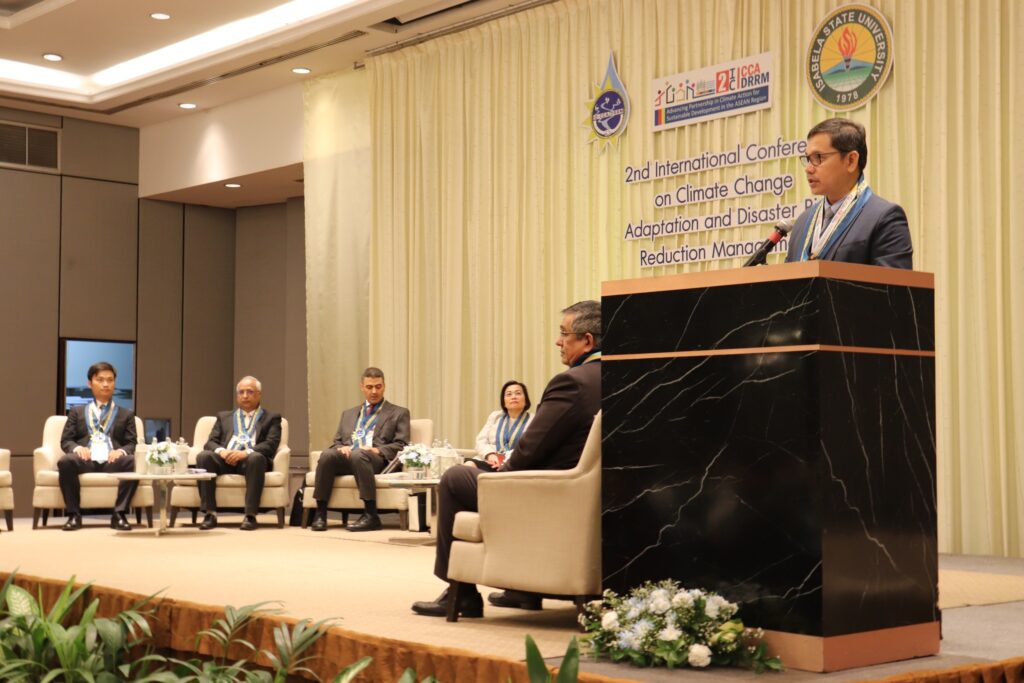
Moreover, Dr. Orlando F. Balderama, ISU Vice President for Research and Development, Extension and Training, presented the conference overview and acknowledged all the participants who came from various agencies of different countries. Afterward, Renato Solidum, Secretary of the Department of Science and Technology, elucidated the essence of resilience as a way of life – embedded in our household, community, business, economy, and governance. On the other hand, Dr. Marita R. Canapi, Commissioner of the Commission on Higher Education, asserted the investment on human knowledge that would eventually foster a community-based and participative resilience toward transgenerational mobilization as proactive climate advocates.
The series of plenary sessions with renowned researchers from the ASEAN region highlighted the conference. With regard to farming system, Mr. Richard Nixon Gomez, General Manager of Bauertek Corporation, discussed the topic “High-Value Crops Used in Agricultural Adaptation for Climate Change” which put forward the wide scale use and economics of curcumin as well as legal medical cannabis for carbon sequestration. In terms of aquafarming industry, Dr. Rex Ferdinand M. Traifalgar, Director of Institute of Aquaculture, College of Fisheries and Ocean Sciences, University of the Philippines – Visayas, elucidated the topic “Bioactive Feed Ingredients and Supplements for Aquaculture in Challenging Climatic Conditions” that gave emphasis on the bioactive carbohydrates as feed additive as well as cooperation, innovation, and action to ensure aquaculture’s sustainability and economic viability during challenging climatic conditions. Considering river basin management, Dr. Joan A. Lagunda, Department of Environment and Natural Resources (DENR) Assistant Secretary, explicated on the topic “Climate-Responsive Forest, Watershed and River Basin Management” that targeted how climate crisis should be addressed through various adaptation and mitigation measures and by climate-responsive management and integrated master plan. With reference to disaster risk reduction management, Dir. Harold N. Cabreros, Director III of Rehabilitation and Recovery Management Service of the Office of Civil Defense, presented the topic “Philippine Disaster Risk Reduction Management System” in which he discussed the Philippine Disaster Profile and the challenges that come along in the implementation of the disaster risk reduction framework.
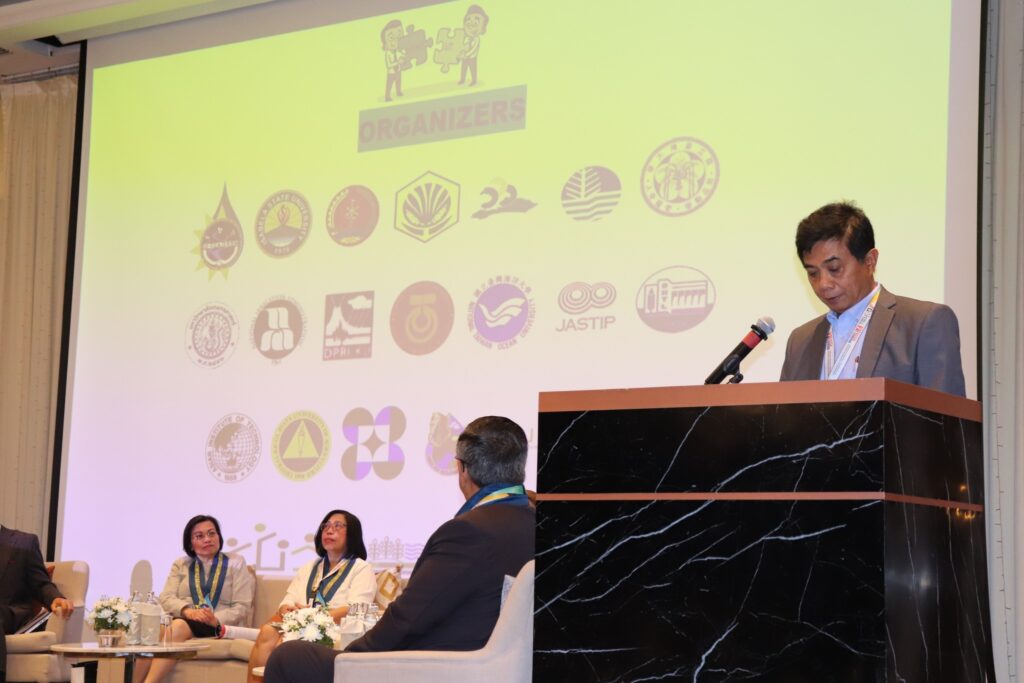
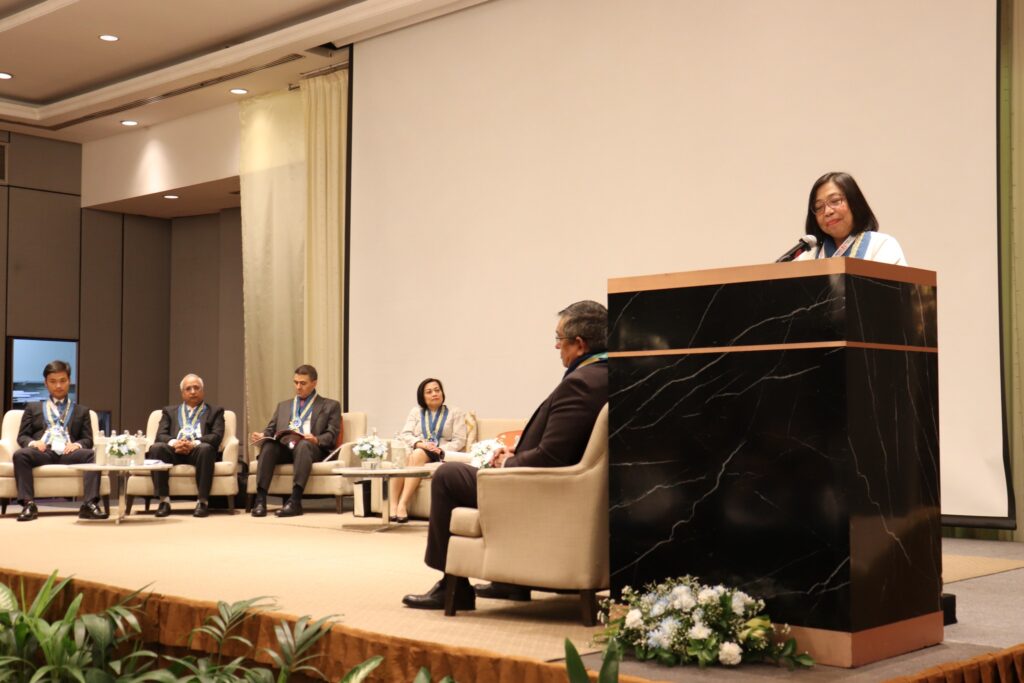
Along the vein of flood and inundation forecasting, Dr. Kwan Tun Lee, Director of Geographic Information System Research Center Department of River and Harbor Engineering, National Taiwan Ocean University, expounded on the topic “Application of Quantitative Rainfall Forecast with Radar Data Assimilation Method for Shallow Landslide Prediction”. He specifically explained the significance of applying topography-based landslide model and radar data assimilation method which provides more accurate results for landslide prediction to reduce the loss of life and property. In terms of dam safety practices, Dr. Pham Hong Nga, Head of the International Cooperation Department, Thuy Loi University, Vietnam, explained the topic “Delivering End-to-End Disaster Risk Management in the Face of Climate Change to Improve Community Safety in Vietnam” which put emphasis on dam development, dam risk assessment and prioritization tool for small dams, flood maps, and downstream consequences.
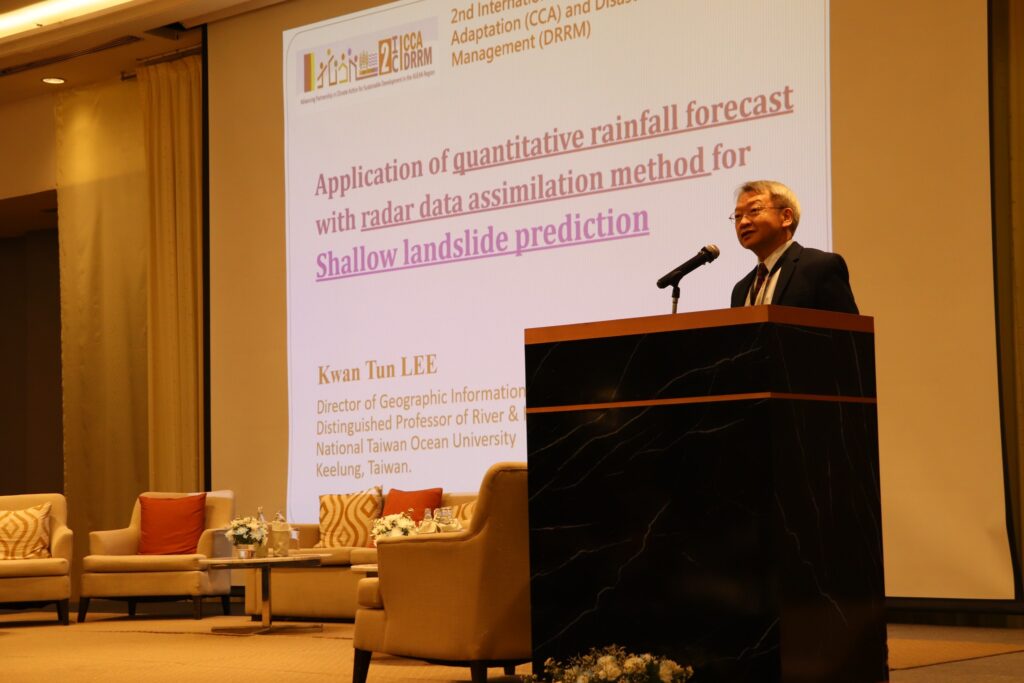
Additionally, with regard to fisheries and aquaculture, Dr. Cherdsak Virapat, Director General of Centre on Integrated Rural Development for Asia and the Pacific (CIRDAP), Bangladesh, discussed the topic “Strengthening Resilience of Small-Scale Farmers and Farming Systems to Climate Change Impacts Through Aquaculture: A Regional Perspective” which gave prominence on the challenges affecting aquaculture particularly climate change impacts as well as the regional initiatives to address these issues. In terms of water resources management, Dr. Sameh Ahmed Kantoush, Associate Professor of the Disaster Prevention Research Institute (DPRI), Kyoto University, Japan, illustrated the best practices on integrated flood and sediment management of Japan by explaining the essence of optimization of reservoir operation based on rainfall-runoff prediction, upgrading of dam facilities, and additional investments for flood and sediment management in the basin scale. On the other side, Dr. Gomez presented how he implements his Punong Pinoy Program which provides sustainable economic support to farmers and addresses the carbon sequestration of megacities in the Philippines.
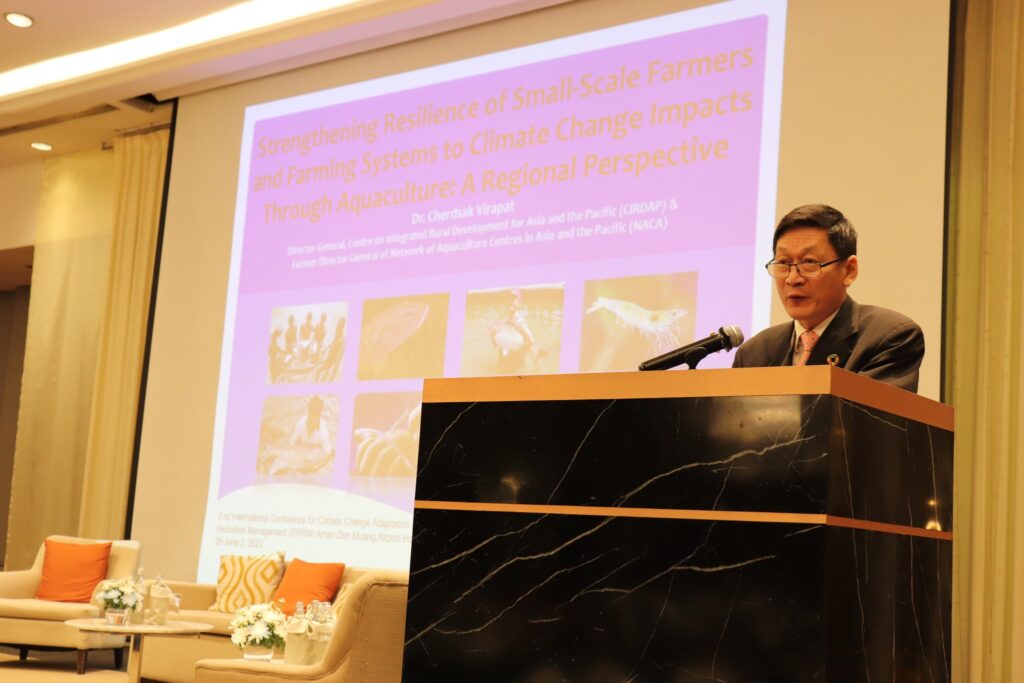
The conference also showcased the results of CCA-DRRM studies featuring affected communities, aquaculture or fisheries, and watersheds from various countries in the ASEAN region, and their corresponding implications for policy and program planning. The winning papers and posters were awarded at the end of the conference, and Dr. Kantoush concluded this activity with words of commendation to all the organizers and participants who shared the same vision with the international organization. With this international-scale exchange of information and collaboration of technically minded professionals, building disaster-proof communities is truly within our reach.


